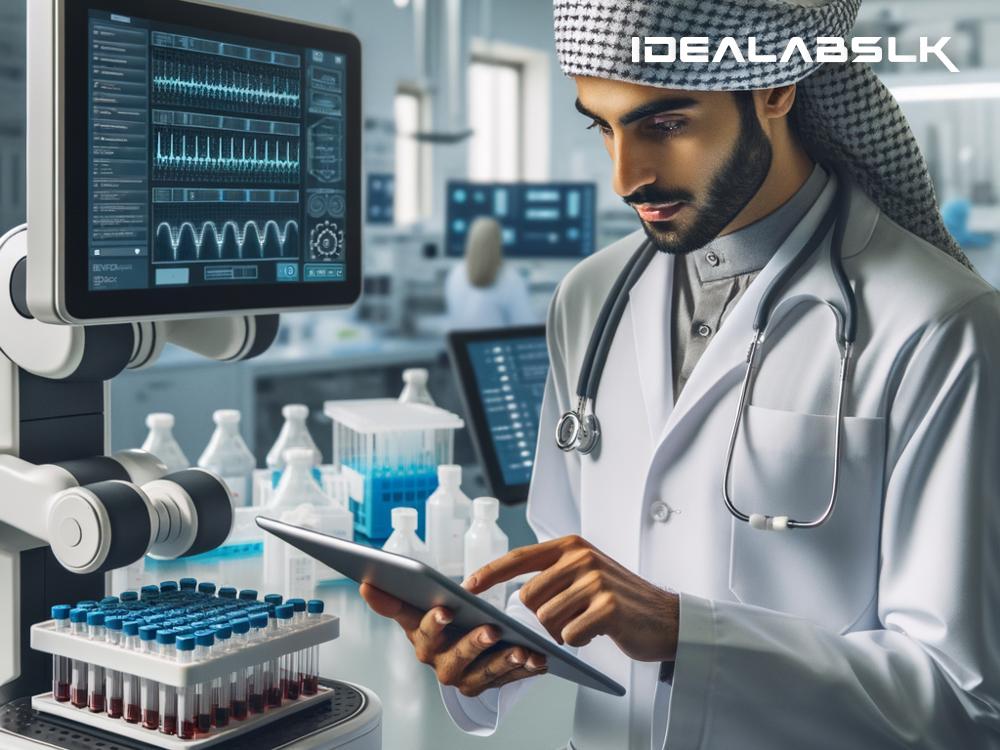How Artificial Intelligence is Revolutionizing Laboratory Workflows in Healthcare
In recent years, we've seen a monumental shift in how healthcare sectors approach diagnoses, patient care management, and laboratory operations, largely thanks to the incredible advancements in Artificial Intelligence (AI). Specifically, in the realm of laboratory workflows, AI has become a game-changer, enhancing efficiency, accuracy, and ultimately improving patient outcomes. Let's dive into the world of AI and explore its impactful role in healthcare laboratories.
The Rise of AI in Healthcare
AI is like a super-smart friend who can analyze vast amounts of data quickly, make predictions, and even learn from its actions over time. In healthcare, this friend is revolutionizing the way professionals approach lab work, transforming complex processes into streamlined operations.
Accelerating Routine Tasks
One of the most immediate benefits of AI is its ability to take over repetitive, time-consuming tasks that traditionally bog down lab technicians. From sorting through thousands of patient samples to accurately labeling and analyzing them, AI systems can handle these chores swiftly and without fatigue. This not only speeds up the workflow but also frees up the human staff to focus on more complex and critical tasks, such as interpreting results and consulting with other medical professionals.
Enhancing Diagnostic Accuracy
Mistakes in diagnostics can have serious implications, but AI is significantly reducing these risks by bringing unprecedented accuracy to lab analyses. AI algorithms can sift through data from blood tests, X-rays, and other diagnostic tools, often catching subtleties and patterns that might escape the human eye. For instance, in the search for cancerous cells or the identification of bacterial strains, AI's ability to learn and improve over time means it gets better at spotting these details, making for quicker and more accurate diagnoses.
Predictive Analytics for Preventive Care
Beyond diagnosis, AI's proficiency in predictive analytics is a potent tool for preventive care. By analyzing trends and outcomes from a wealth of data, AI can predict the onset of diseases or complications before they manifest, leading to timely interventions. For example, AI can analyze the data of patients with a predisposition to diabetes and predict the likelihood of the condition worsening, enabling healthcare providers to advise changes in lifestyle or initiate treatments to mitigate risks.
Customized Treatment Plans
Every patient is unique, and AI's data-driven insights are making it possible to tailor treatments to individual patient needs with precision never seen before. In the context of laboratory work, AI can help identify which treatments are likely to be most effective based on a patient's specific test results, genetic information, and disease markers. This level of personalization not only enhances the chances of successful outcomes but also minimizes the risk of side effects.
Streamlining Clinical Trials
Clinical trials are crucial for advancing medical knowledge and treatments, but they are also long, complex, and costly. AI is proving to be an invaluable asset in this area as well. It can help identify suitable candidates for trials quickly by matching patient data against trial requirements. Furthermore, AI can monitor trial results in real time, rapidly identifying trends, anomalies, or side effects that might take human researchers much longer to spot.
Challenges and Ethical Considerations
Despite its many benefits, the integration of AI into healthcare laboratories is not without challenges. Data privacy and security are of paramount concern, as is ensuring the AI systems are transparent and decisions can be understood and trusted by human professionals. There's also the task of training healthcare personnel to work alongside AI, navigating the evolving landscape of technology-enhanced healthcare.
The Future is Bright
As AI technologies continue to evolve, their potential to transform laboratory workflows and healthcare as a whole is immense. While there are hurdles to overcome, the benefits - increased efficiency, accuracy, and personalized care - underscore the importance of embracing this digital revolution.
In the hands of healthcare professionals, AI is more than just a tool; it's a partner that offers the promise of better healthcare for all. By streamlining laboratory workflows and bringing a new level of insight to medical diagnostics and treatment plans, AI is truly at the forefront of a healthcare revolution. And that's something we can all look forward to.

